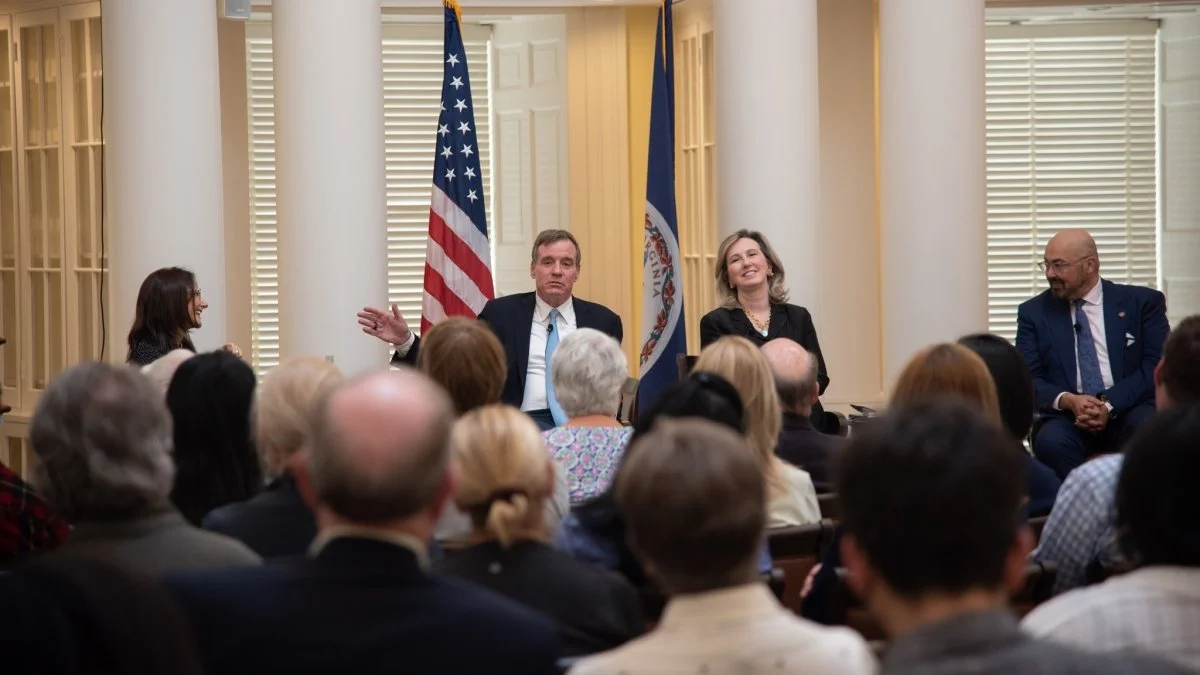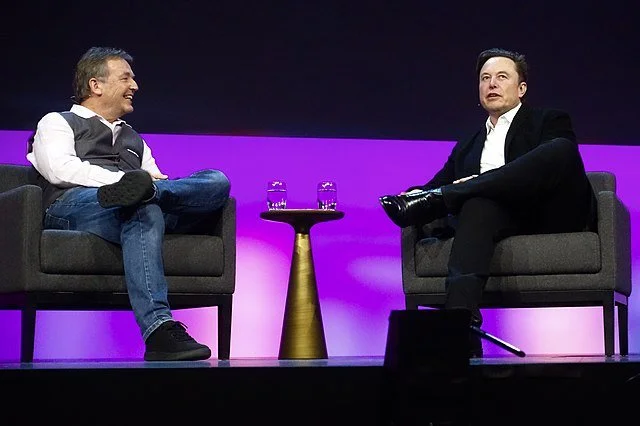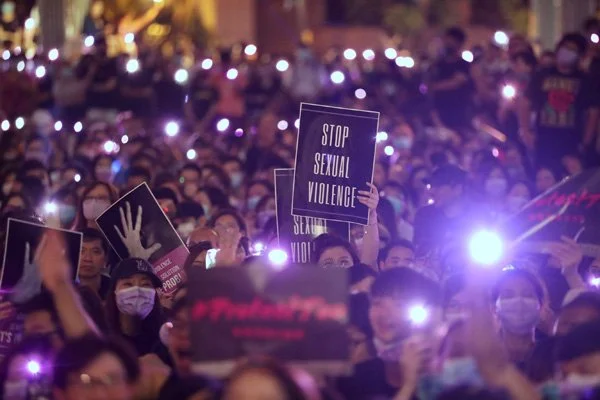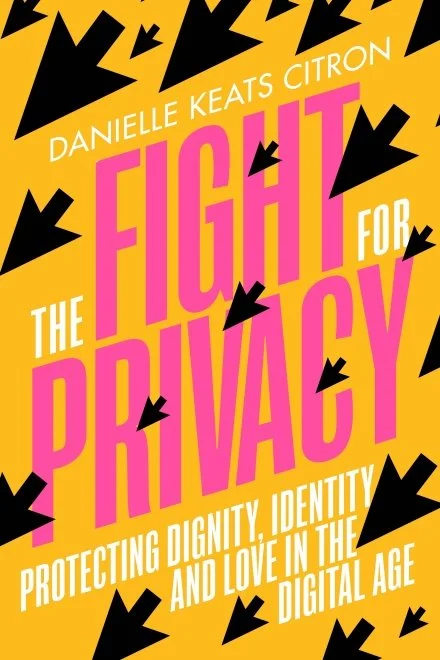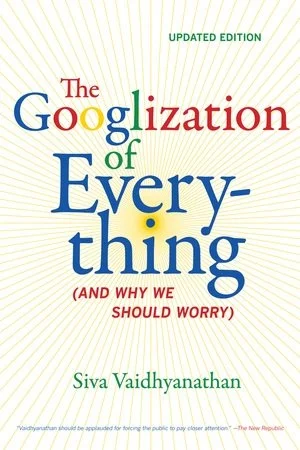Saving Social Media
Can Congress rescue internet speech from bullies, bots, and behemoth business interests?
Read
In the past few years, American politicians have gotten tougher about internet oversight, at least rhetorically. But it remains unclear whether Washington has the will to actually regulate big tech companies and the platforms they control. This week we hear from Sen. Mark Warner, a Democrat, and former Rep. Barbara Comstock, a Republican, who joined the show live from the University of Virginia’s celebrated dome room. They see hope for bipartisan action on Capitol Hill, to protect users and free speech alike. Siva reflects with guest-host Danielle Citron, a UVA law professor and McArthur genius.
One big question is what to do about “Section 230,” the part of a 1996 law that protects internet firms from liability when users post copyrighted or defamatory content. At the same time, the law also allows each platform to moderate user-provided content. In this way, Section 230 set crucial guardrails for social media traffic. But many privacy advocates, including Citron, say that law, now a quarter-century old, is much too broad. As a result, online harassment, threats of violence and libel have gotten out of hand even as internet companies get a free pass. Never mind all the problems that come with an online world driven by profit — where users are monetized, atomized and polarized at the expense of civic life and, paradoxically, free speech itself.
Warner argues that privacy standards like those in place in the European Union — as well as carefully crafted checks on internet giants like Facebook and Amazon — could help tame the wild web. And while Comstock is wary of hindering free speech and the openness of platforms like Twitter, she says compromise can be struck on data security and antitrust legislation, so long as members of her own party have the courage to reject Trumpism. At the end of the day, they both say, it will be up to American voters to speak through the ballot box.
Meet
Mark Warner is the senior senator of Virginia and served as the commonwealth’s governor from 2002 to 2006. Earlier in his career, Warner invested in technology companies and helped found the telecom giant Nextel. He has chaired the Democratic Party of Virginia and was elected to the Senate in 2008, where he sits on the Finance, Banking, Budget and Rules committees; he chairs the Committee on Intelligence. Follow Warner on Twitter @MarkWarner.
Barbara Comstock represented Virginia’s 10th Congressional District in the U.S. House from 2015 to 2019. Earlier she was a member of the Virginia House of Delegates, worked on Mitt Romney’s and George W. Bush’s presidential campaigns and directed public affairs for the U.S. Justice Department. After losing her reelection bid, Comstock served as a fellow at the Harvard Institute of Politics; led the Barbra Comstock Program for Women in Leadership at George Mason University; and made frequent appearances as a political analyst on ABC News. She is currently a senior adviser with the lobbying firm Baker Donelson. Follow Comstock on Twitter @BarbaraComstock.
Danielle Citron was named a MacArthur Fellow in 2019. She is the Jefferson Scholars Foundation Schenck Distinguished Professor in Law at the University of Virginia School of Law. Her research focuses on information privacy, free expression and civil rights. Citron is the author of the forthcoming book The Fight for Privacy: Protecting Dignity, Identity and Love in the Digital Age (Penguin, 2022) and, earlier, of Hate Crimes in Cyberspace (Harvard University Press, 2016). Follow Citron on Twitter @daniellecitron.
By 2018, Warner had already put together 20 proposals intended to strike a balance between innovation and regulation in the tech industry. In a USA Today op-ed, he laid out the logic behind some of those much-needed changes.
Warner has also written widely about healthcare policy, national security, labor issues and student loan debt.
Comstock has not pulled any punches in her criticism of Donald Trump or been shy about decrying her Republican colleagues’ fear of the former president.
She has also pushed them to support legislation that would fund a bipartisan commission to investigate the Jan. 6, 2021, insurrection at the U.S. Capitol.
This isn’t her first time on the show. Comstock sat down with Will and Siva for our season finale a year ago — a little episode we called “WTF, GOP.”
In Hate Crimes in Cyberspace, Citron exposes how abusive users, sometimes ganging up as cyber-mobs, use network technology to target people and subject them to terrifying harassment.
Her forthcoming book, The Fight for Privacy, calls for recasting privacy as a human right. It draws on interviews with victims, activists and lawmakers fighting for better management and protection of online data.
Citron’s academic work includes papers on the problem of proving actual harm in privacy cases, the dangers of automation and the regulation of sexually intimate content.
Check out her work in the popular press, too. In Slate, Citron has defended Donald Trump’s banishment from the major social media platforms. And in a 2020 Washington Post op-ed she argued that health surveillance programs would put American freedoms at risk.
Citron is also a repeat guest on Democracy in Danger. We had her on the show in Season Two, for a deep dive on the dark side of cyberspace.
Learn
Europe has stronger data protections than the United States. Here’s a primer on the EU’s General Data Protection Regulation, which requires companies to seek consent for data collection and gives users the “right to be forgotten” — i.e., erase their personal data from websites.
In 2020, Wired profiled Warner’s efforts to reign in media platforms and investigate Russian meddling in U.S. elections.
Siva has two books, on the power and ubiquity of tech giants Facebook and Google.
Since late April he’s been busy commenting on Elon Musk’s proposed takeover of Twitter. If Musk does away with the company’s content moderation, the world’s richest man will “find pretty fast that inviting the bigots back in is bad for business,” Siva told the Associated Press.
He has also said Twitter is less important than most people think and called out its would-be buyer’s shallow understanding of free speech.
The Securities and Exchange Commission is eyeing the agreement closely. Musk himself seems intent on scuttling his own offer, and continues to make characteristically erratic statements about it. This week he threatened to call off the $44 billion deal if Twitter didn’t turn over more information on fake accounts.
On the day Musk first announced his plan, the White House reiterated President Biden’s support for “revoking” Section 230 entirely. Read more on the politics of Section 230 reform, from the Brookings Institution.
While Section 230 is a thorny issue, other ideas have bipartisan support and are making their way through Congress. Some lawmakers, for instance, want to guarantee “data portability,” allowing users to move more easily from one platform to another, taking their personal information with them.
Two other bills with a fighting chance to pass before this year’s midterms go after the competitive edge that big tech firms try to give themselves. One measure would prohibit “self-preferencing,” for example: when Amazon ranks its own products higher than those of competitors who also rely on the service. Another would require Apple and Google to lift onerous restrictions on app developers, making it easier for smaller companies to distribute their software.
But two law professors warn in the Washington Post: be careful what you wish for.
Yet another bill, introduced last month, takes direct aim at Google’s $55 billion advertising business. Alphabet, Google’s parent company, is lobbying hard against the plan, which has support across ideological lines.
Earlier this season, we looked at the origins of Silicon Valley’s political influence as well as the importance of broadband access to the health of democracy. We’ve also considered ecosystems analysis in media studies and the spread of conspiracy theories online. And check out two more shows from Season One on disinformation and the dangers of big data mining.


